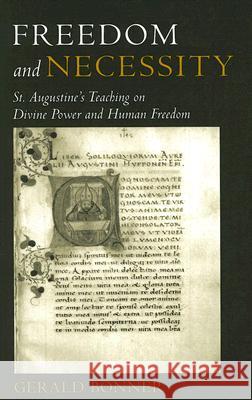Freedom and Necessity St. Augustine's Teaching on Divine Power and Human Freedom » książka
Freedom and Necessity St. Augustine's Teaching on Divine Power and Human Freedom
ISBN-13: 9780813214740 / Angielski / Miękka / 2007 / 192 str.
Aurelius Augustinus (354-430), bishop of Hippo Regius (the modern Annaba in Algeria), is considered one of the outstanding thinkers in Western Christian civilization, Catholic and Protestant alike. Particularly influential has been his pessimistic doctrine of divine predestination, which holds that only a small proportion of humanity has been selected by God for salvation, while the overwhelming majority, including all unbaptized persons, are damned. Yet, paradoxically, Augustine's exposition of the Eucharistic unity of the elect in the Body of Christ, his Christology, and his emphasis on love as the principal mark of the Godhead have provided a pattern for Christian devotion and spirituality down through the ages. This book seeks to explain this paradox in Augustine's theology by tracing how these different emphases arose in his thought, and speculating as to why he endorsed, in the end, his theology of predestination. The book is intended not only for students of theology and church history, but even more for readers attracted to Christian doctrine. Written in straightforward language, it supplies adequate references to original sources for those wishing to further pursue the subject. The author, a historian turned theologian, has studied Augustine for more than sixty years and seeks neither to extenuate nor to condemn him, but to depict his thought. His book will prove fruitful for all who engage it.











